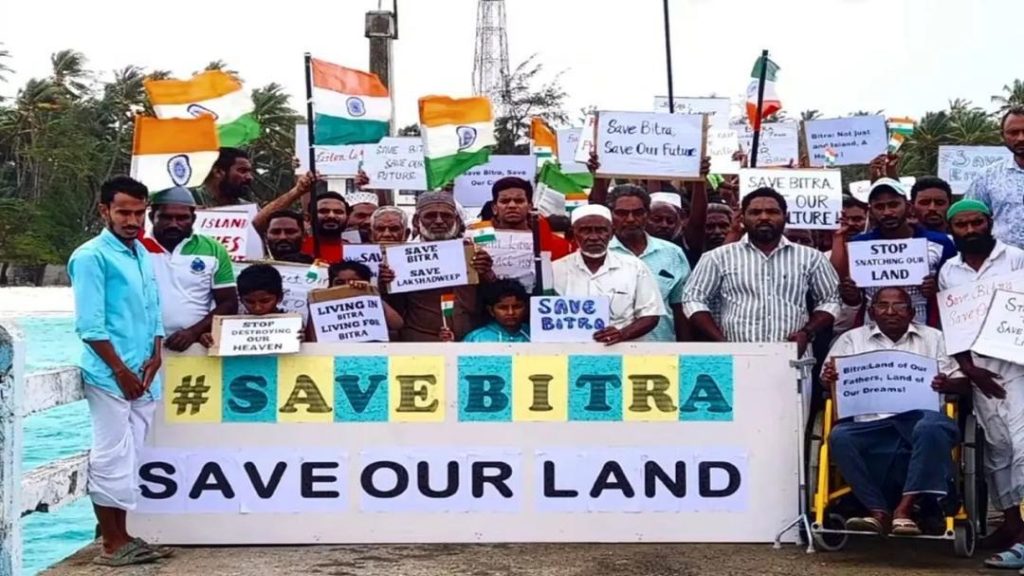
Lakshadweep Administration Issued Notice to Acquire Bitra: A Threat to the Island’s Identity and Livelihood
The union territory of Lakshadweep has been making headlines recently with the news of the administration’s decision to acquire the entire Bitra Island. The final notification for the acquisition was issued on July 11, 2025, and published in The Lakshadweep Gazette Extraordinary. The notification, signed by Shivam Chandra, IAS, Collector (Land Acquisition), has left the residents of Bitra Island shocked and devastated.
The news of the acquisition has sparked widespread protests and condemnation from the people of Bitra, who are demanding that their rights be respected and their island be saved. The protests have been peaceful, with residents gathering in large numbers to express their opposition to the acquisition. The slogan “No country is secure when its people are homeless, Save Bitra” has become a rallying cry for the protesters, who are determined to fight for their rights.
The acquisition of Bitra Island is not just a matter of territorial ownership; it is a threat to the very identity and livelihood of the people who live there. The island has a rich cultural heritage, with a unique language, customs, and traditions that are distinct from the rest of India. The acquisition of the island could lead to the erasure of this cultural identity, as the island is likely to be transformed into a tourist destination or a hub for industrial activities.
The residents of Bitra Island are worried that the acquisition will lead to the displacement of their community, forcing them to leave their homeland and relocate to other parts of the country. This would mean the end of their traditional way of life, as they would be forced to adapt to a new environment and culture. The thought of leaving behind their ancestral homes, their fields, and their community is a devastating one, and the residents of Bitra are determined to fight against it.
The acquisition of Bitra Island is also a violation of the rights of its residents. The residents of the island have been living there for generations, and they have a deep connection with the land. They have a right to continue living there, and to have their traditional way of life protected and preserved. The acquisition of the island without the consent of its residents is a violation of their rights, and it is unacceptable.
The government’s decision to acquire Bitra Island has also raised questions about the transparency and accountability of the administration. The residents of the island were not consulted before the notification was issued, and there is no clear plan for the future of the island and its residents. The government’s decision has been criticized for being arbitrary and unjust, and it has been accused of being motivated by political and economic interests rather than the well-being of the people.
The acquisition of Bitra Island has also sparked concerns about the impact it will have on the environment. The island is home to a unique and diverse ecosystem, with coral reefs, mangrove forests, and other natural habitats that are critical for the survival of marine life. The acquisition of the island could lead to the destruction of these habitats, and the loss of biodiversity that they support.
The people of Bitra Island are demanding that their rights be respected, and that their island be saved. They are calling on the government to withdraw the notification and to engage in a meaningful consultation with the residents of the island. They are also calling on the government to recognize their rights to their traditional way of life, and to protect and preserve their cultural identity.
In conclusion, the acquisition of Bitra Island is a threat to the identity and livelihood of its residents, and it is a violation of their rights. The government’s decision to acquire the island without the consent of its residents is unacceptable, and it has sparked widespread protests and condemnation. The people of Bitra Island are demanding that their rights be respected, and that their island be saved. It is the responsibility of the government to engage in a meaningful consultation with the residents of the island, and to find a solution that respects their rights and protects their way of life.
Source:






